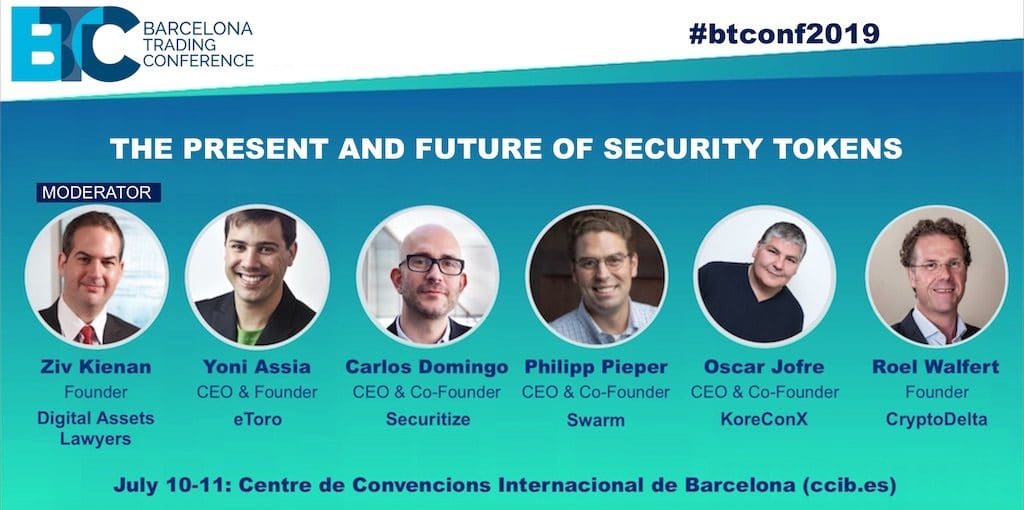The started the afternoon off with a bang. Five panelists–Pilipp Pieper, Bilal El Alamy, Yoni Assia, Roel Wolfert, and Carlos Domingo, sat alongside moderator , for a panel on the present and future of Security Tokens.

He explained that the things that tokenization can bring to the securities space constitute a “3-legged stool”: access, liquidity, and efficiency.
Using asset tokenization, “we can collapse the process of compliance and documents from one way to another”, he said. In other words, the process of buying and selling assets can be simplified from beginning to end–which, Piepper noted, is an improvement” to regulators’ current state of affairs.
Yoni Assia, CEO of eToro, pointed out that while this may be true in the future, the act of tokenizing an asset as this moment in times often involves jumping through endless regulatory hoops. Indeed, the current state of affairs is “very tedious work, very high cost,” he agreed. “But suddenly, if you want to do security tokens, you need twice the amount of lawyers.”
This is “probably because we’re at the point in time that regulations haven’t been established yet,” he added.
He also pointed out that there’s a serious lack of liquidity within the security token space. “Where is the liquidity coming from in the STO market?”, he asked. “If there are no buyers and no exchanges that list security tokens, there’s a big liquidity gap.”
Carlos Domingo agreed, but said that tokenization simply needs time to develop before it can be implemented on a major scale. “You have to think about [the fact that] today, there are only three exchanges that are trading security tokens”, and those that are list only a few.
“The marketplaces just aren’t there [yet];” he said. “The ones that are have just launched several months ago…the situation is particularly bad because we are in the early days of the market.”
“It’s going to take 12-18 months for this to mature and make a big impact.”
While this may be the case, Pieper said that “people aren’t realizing how big an institutional engagement is happening now.”
But what needs to happen before tokenization becomes a more widely-used practice? “We will win if we make this process smell and feel like a regular investment process,” he said.

The Problem with Tokenization? “Marketplaces Just Aren’t There”
More from AnalysysMore posts in Analysys »




Be First to Comment